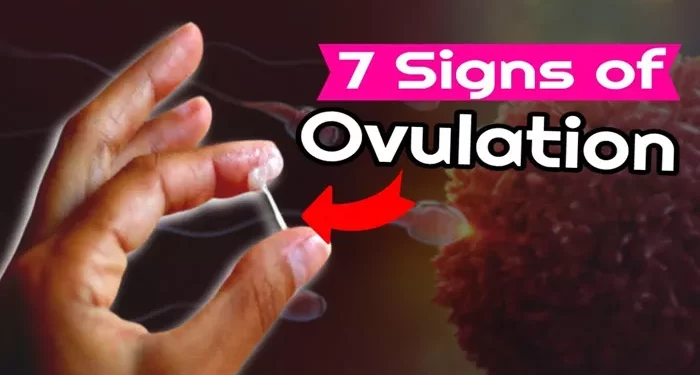Understanding ovulation is crucial for anyone trying to conceive or track their menstrual health. Ovulation is a part of the menstrual cycle when an egg is released from the ovary. Recognizing the signs of ovulation can help in planning for pregnancy or managing reproductive health issues. This article will explain what ovulation is, the signs and symptoms of ovulation, how to track it, and what to do if you suspect problems with ovulation.
See Also: 3 Reason for Not Ovulating
What is Ovulation?
Ovulation is the process in which an ovary releases a mature egg. This usually occurs around the middle of a woman’s menstrual cycle. The average cycle is 28 days, but it can vary from woman to woman. Ovulation typically happens between day 11 and day 21 of the cycle. This period is when a woman is most fertile.
The menstrual cycle begins with the first day of menstruation. During the first phase, known as the follicular phase, the body prepares for ovulation. Follicle-stimulating hormone (FSH) stimulates the ovaries to produce several follicles, each containing an immature egg. One of these follicles will become dominant and mature. This process takes about two weeks.
Ovulation marks the end of the follicular phase. The luteinizing hormone (LH) surges, triggering the release of the mature egg from the ovary. The egg then travels down the fallopian tube towards the uterus. If sperm meets the egg during this journey, fertilization can occur. If not, the egg dissolves, and the cycle continues with the luteal phase, ending with menstruation.
Signs and Symptoms of Ovulation
Many women experience physical signs when they ovulate. Understanding these signs can help in identifying the ovulation period.
Changes in Cervical Mucus
One of the most noticeable signs of ovulation is a change in cervical mucus. As ovulation approaches, the mucus becomes clear, slippery, and stretchy, similar to raw egg whites. This consistency helps sperm swim through the cervix and into the uterus.
To check your cervical mucus, wash your hands and insert a finger into the vagina to reach the cervix. Pull out some mucus and observe its consistency. If it stretches between your fingers, it indicates fertile cervical mucus.
Basal Body Temperature (BBT) Changes
Basal body temperature is your body’s temperature at rest. After ovulation, progesterone levels rise, causing a slight increase in BBT. By charting your BBT daily, you can detect a pattern. A sustained rise in BBT indicates that ovulation has occurred.
To track BBT, use a basal thermometer to take your temperature each morning before getting out of bed. Record the readings on a chart or use a fertility app. Over a few months, patterns will emerge, helping you predict ovulation.
Mittelschmerz (Ovulation Pain)
Some women experience a dull or sharp pain in the lower abdomen, known as mittelschmerz, around the time of ovulation. This pain can last from a few minutes to several hours and typically occurs on one side of the abdomen, depending on which ovary releases the egg.
Mittelschmerz is a reliable indicator of ovulation for some women. However, not everyone experiences it, and its absence does not mean you are not ovulating.
Breast Tenderness
Hormonal changes during ovulation can cause breast tenderness or soreness. This is due to the surge in progesterone following ovulation. The discomfort usually subsides once menstruation begins.
Increased Libido
Many women notice an increase in sexual desire around the time of ovulation. This natural spike in libido is your body’s way of encouraging reproduction when you are most fertile.
Methods to Track Ovulation
Besides observing physical signs, several methods can help you accurately track ovulation.
Ovulation Predictor Kits (OPKs)
Ovulation predictor kits test the urine for an LH surge, which precedes ovulation by 12-36 hours. These kits are widely available and easy to use. Follow the instructions on the package for the best results. Start testing a few days before you expect to ovulate and continue until you detect the LH surge.
Fertility Monitors
Fertility monitors are more advanced than OPKs. They track hormone levels over several days to predict your fertile window. Some monitors also track BBT and cervical mucus to provide a more comprehensive view of your cycle.
Ultrasound Monitoring
For women undergoing fertility treatments or those with irregular cycles, ultrasound monitoring can provide precise information about ovulation. A doctor uses ultrasound to track the growth of ovarian follicles. When the follicles reach a certain size, ovulation is imminent.
Blood Tests
Blood tests can measure hormone levels, such as LH, FSH, and progesterone, to confirm ovulation. These tests are typically done in a doctor’s office and are used to diagnose ovulation disorders.
Lifestyle Factors Affecting Ovulation
Several lifestyle factors can influence ovulation and overall fertility.
Diet and Nutrition
A balanced diet rich in vitamins and minerals supports reproductive health. Key nutrients include:
- Folic Acid: Found in leafy greens, citrus fruits, and beans, folic acid is essential for cell division and DNA synthesis.
- Iron: Iron deficiency can affect ovulation. Include iron-rich foods like red meat, beans, and fortified cereals in your diet.
- Omega-3 Fatty Acids: These healthy fats, found in fish and flaxseeds, support hormone regulation.
Exercise
Regular moderate exercise promotes overall health and can positively impact ovulation. However, excessive exercise can disrupt menstrual cycles. Aim for a balanced workout routine that includes aerobic exercise, strength training, and flexibility exercises.
Stress Management
Chronic stress can interfere with the hormones responsible for ovulation. Practice stress management techniques such as yoga, meditation, and deep breathing exercises. Maintaining a healthy work-life balance and getting enough sleep are also important.
Medical Conditions Affecting Ovulation
Certain medical conditions can disrupt ovulation and cause infertility.
Polycystic Ovary Syndrome (PCOS)
PCOS is a common endocrine disorder that affects ovulation. Women with PCOS often have irregular cycles, high levels of androgens (male hormones), and multiple cysts on their ovaries. Symptoms include acne, weight gain, and excessive hair growth. Treatment options include lifestyle changes, medications to regulate ovulation, and fertility treatments.
Thyroid Disorders
Both hypothyroidism (underactive thyroid) and hyperthyroidism (overactive thyroid) can affect menstrual cycles and ovulation. Symptoms of thyroid disorders include weight changes, fatigue, and changes in heart rate. Thyroid function tests can diagnose these conditions, and treatment usually involves medication to regulate thyroid hormones.
Hyperprolactinemia
High levels of prolactin, the hormone responsible for milk production, can inhibit ovulation. Causes include pituitary gland disorders, certain medications, and hypothyroidism. Treatment involves addressing the underlying cause and medications to lower prolactin levels.
Premature Ovarian Insufficiency (POI)
POI, also known as early menopause, occurs when the ovaries stop functioning before age 40. Symptoms include irregular periods, hot flashes, and night sweats. Hormone replacement therapy (HRT) and fertility treatments are potential options for women with POI.
When to Seek Medical Help
If you have been trying to conceive for over a year without success (or six months if over 35), it is time to seek medical advice. Also, if you have irregular periods, severe menstrual pain, or any symptoms of the conditions mentioned above, consult a healthcare provider. Early diagnosis and treatment can improve your chances of conceiving.
Conclusion
Understanding ovulation is key to reproductive health and fertility. By recognizing the signs and symptoms of ovulation, tracking your cycle, and making healthy lifestyle choices, you can increase your chances of conception. If you suspect any issues with ovulation, seeking medical advice can provide you with the necessary support and treatment. Remember, each woman’s body is unique, and what works for one person may not work for another. Patience and persistence are essential on this journey.
Related Links:



























